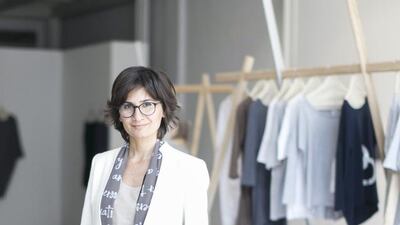ABU DHABI // The number of cancer diagnoses in the Middle East in the next two decades will nearly double unless authorities take action, the World Health Organisation has warned.
The WHO estimated that in the Eastern Mediterranean region – which included the Middle East – there were 555,318 new cases of cancer in 2012.
By 2030, this could rise to 961,098, meaning the Eastern Mediterranean will have the highest relative increase of all regions in the world.
“Regrettably, evidence shows that cancer rates continue to rise globally and regionally because of unhealthy lifestyles and limited access to treatment and good quality cancer care,” said Dr Ala Alwan, WHO regional director.
“There is a pressing need to take action to reverse this trend.”
The statistics released by the WHO to mark World Cancer Day on Thursday revealed that 400,000 people in this region will die from cancer every year.
Poor health care, unhealthy lifestyles and lack of early detection are blamed for the rise in cancer, said Dr Alwan.
“Health systems need to be strengthened by moving towards universal health coverage, which means ensuring healthcare services to all people at affordable costs,” he said.
In the UAE, 12 people have cancer diagnosed every day, so nearly 4,500 cases are diagnosed every year, said doctors speaking at a World Cancer Day event organised by support group Rahma this week.
Dr Aladdin Maarraoui, chief of oncology and haematology at Mafraq Hospital, said the standard of cancer care varies from country to country, but in the UAE it was generally good.
The issue, however, was whether patients had sufficient insurance coverage to receive good quality treatment. While cancer treatments are free for Emiratis, only some insurance policies for expatriates cover all the costs.
“The insurance should cover it all,” said Dr Maarraoui. “The premium should not increase if a person gets a disease.”
Dr Ashok Uttamchandani, oncology physician at Mafraq Hospital, believed that “the mortality is going down but the incidence of cancer is on the rise”.
Lama Riachi, 37, co-founder of Blessed (Together), a Dubai-based support group for women with cancer, said of the 100 members in her group almost two thirds were undergoing treatment for cancer.
Of these, about half do not have proper insurance or have the level capped.
“Not having insurance is a catastrophe for anyone who is diagnosed with cancer,” said Ms Riachi, from Lebanon, who recovered from ovarian cancer.
“A lot of people have insurance but the treatment is so expensive that is you’re lucky if you get half way through.”
She said many expatriates who do not have the financial means to support their treatment here also do not have the financial means to receive it back home.
“Most of them are even loathe to tell their families that they’re sick. It’s a financial and psychological struggle,” said Ms Riachi.
The prohibitive costs of cancer medication means that many people do not end up seeking treatment, the expatriate said. “The cost is staggering and with every chemotherapy, the cost could increase. We have a lot of people in our group who have not taken the treatment,” said Ms Riachi.
She believed cancer treatments should be more affordable. “The same medicines that cost Dh12,000 in Dubai are available for half the price in India, “ said Ms Riachi.
arizvi2@thenational.ae


